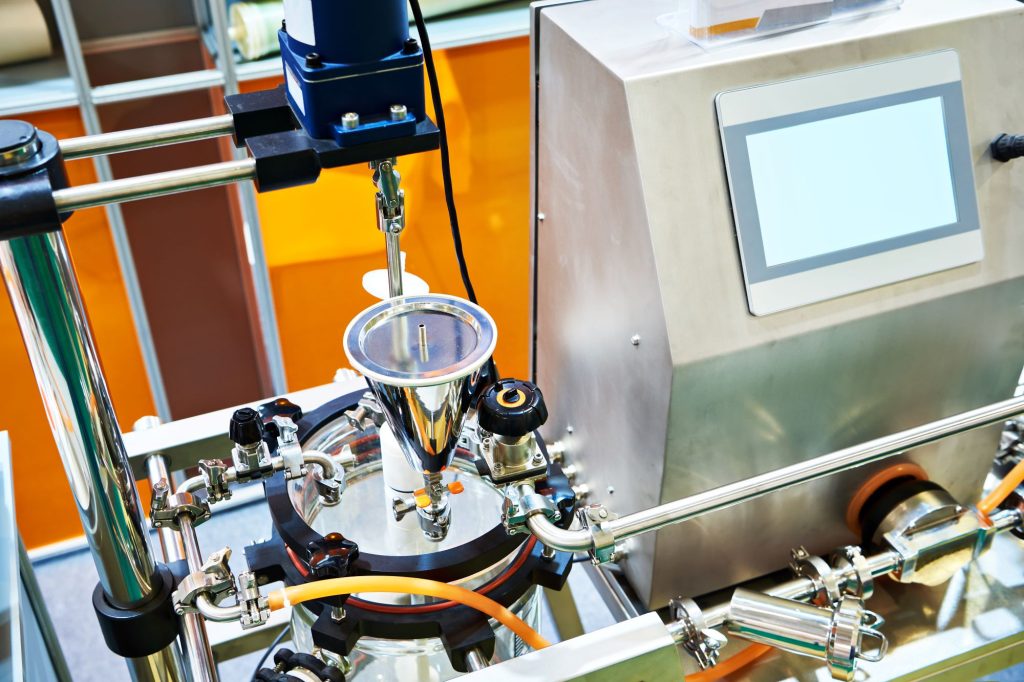A vacuum pump is a device used to remove gas and air molecules from a confined space. These pumps offer a variety of uses in different industries, especially in their manufacturing processes. This makes them an indispensable tool due to their functionality in diverse applications.
Vacuum pumps are renowned for their high-quality performance and precision. Companies like KNF go the extra mile to take their time to meticulously design and assemble each pump tailored for their specific role in various industries.
This article will explore the use of vacuum pumps in different sectors, demonstrating their versatility and importance.
-
Food And Beverage Industry
This industry heavily relies on vacuum pumps as this technology aids in ensuring food safety, longevity, and quality. One of the most significant functions of vacuum pumps in this industry is to seal air-tight packaging to keep food or drinks fresh.
Below are several ways of utilizing vacuum pumps in this industry:
-
Vacuum Packaging. Vacuum sealing is a popular method used to minimize food exposure to oxygen. Removing the air from the packaging using vacuum pumps helps preserve the freshness of food products.
-
Vacuum Impregnation Processes. Vacuum pumps are used in this process to improve and enhance the quality, flavor, texture, and appearance of food products. Various food products, such as fruits, vegetables, meat, and seafood, utilize vacuum impregnation.
-
Pharmaceutical Industry
Another sector heavily dependent on vacuum pumps is the pharmaceutical industry. One primary application is in the production of medicines and drugs. Here’s how this industry utilizes vacuum pumps:
-
Distillation. It’s a process of separating components at temperatures lower than their normal boiling points. This is beneficial when handling temperature-sensitive substances.
-
Drying. This process ensures that products are free from moisture. It also helps in maintaining the integrity of heat-sensitive products.
-
Sterilization. This process ensures that the substances and tools are free of viruses, bacteria, and fungi. This step promotes safety and proper hygiene.
-
Medical Industry
Vacuum pumps serve different purposes in the medical industry, from patient care to medical procedures to laboratory research. Here’s how the medical field uses vacuum technology:
-
Respiratory Therapy. Respiratory machines like nebulizers, oxygen concentrators, and ventilators use vacuum pump technology. They utilize pumps to create the negative pressure necessary for these devices to function, such as clearing airways.
-
Surgical Application. Vacuum pumps power sterilization systems and other types of equipment in surgical settings. For instance, suction-based devices operate using vacuum pumps, giving surgeons a clear view and preventing complications during surgery.
-
Heating, Ventilation, And Air Conditioning (HVAC) Industry
Vacuum pumps are a vital tool in the HVAC industry. They remove moisture and air from the unit to protect tubing and internal components from potential damage. HVAC technicians use vacuum pumps to help control and modulate system pressure when installing and repairing HVAC systems.
Here are some ways the HVAC industry utilizes vacuum pumps:
-
System Evacuation. Before the refrigerant is charged into an air conditioning system, vacuum pumps pull air and moisture from the unit. This is crucial to avoid equipment malfunction or reduced efficiency.
-
Leak Detection. Vacuum pumps are crucial for the diagnostic process of your HVAC units. Technicians use vacuum pumps to evacuate air and moisture from the system, which helps to test for leaks and ensure it operates efficiently.
-
Oil And Gas Industry
Vacuum pumps are so versatile that some of the largest industries, like oil and gas, use them for various applications. This industry utilizes them across multiple manufacturing processes, such as petroleum refining, gas collection, and venting.
Here’s a closer look at how this industry applies them:
-
Petroleum Refining. This process involves vacuum distillation. It’s a process of separating and purifying liquid substances under reduced pressure. Since crude oil contains various types of hydrocarbons, distillation separates heavy hydrocarbons such as bitumen and fuel oils. Vacuum pumps maintain the lower pressure to preserve the hydrocarbons’ integrity and produce valuable by-products, including lubricating oils and waxes.
-
Gas Collection and Venting. During the oil and gas extraction, vacuum pumps collect the emitted gases to ensure they’re safely vented or flared. This is essential to prevent the risks of explosions and helps in compliance with environmental regulations that limit the release of pollutants in the atmosphere.
In Conclusion:
Vacuum pumps have a wide range of applications beyond simple vacuum creation. They also offer solutions for maintaining product quality, ensuring operational safety, and enhancing process efficiency. The widespread use of vacuum pumps demonstrates their functionality, versatility, and the technological innovations they enable.





